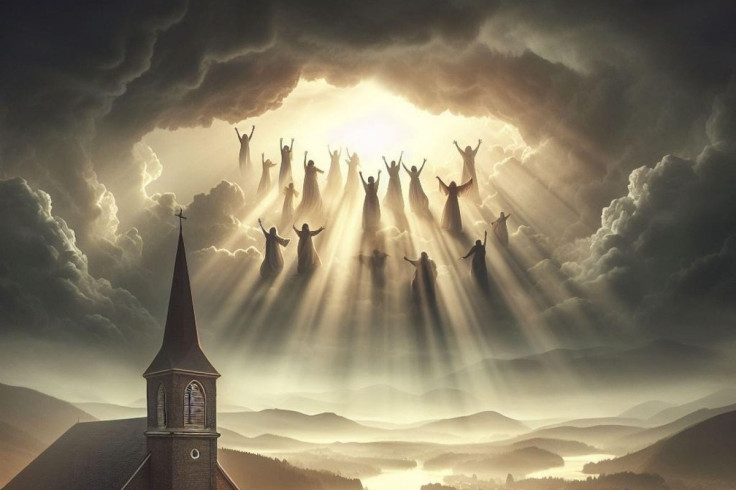Did the Rapture Of Christians Happen? Here's What The Scriptures Say To Watch Out For
Numerous predictions of the Rapture and end-of-world scenarios have failed to materialise.

On 23 September, social media erupted with speculation that the Rapture, the moment when Christians believe they will be taken up to meet Jesus Christ, might occur.
The frenzy was sparked by South African pastor Joshua Mhlakela, who claimed that Jesus appeared to him in a dream in 2018 and revealed that the Rapture would happen on that date. On TikTok, over 311,000 videos appeared under the hashtag #rapturenow, ranging from serious advice to humorous takes on angel wings and 'spiritual fashion.'
But did the Rapture actually happen? And what does the Bible say believers should expect or prepare for?
What Is the Rapture?
The Rapture is a concept in Christian eschatology, particularly among evangelical and dispensationalist believers. It describes a future event when living and deceased followers of Christ will be 'caught up' to meet Him in the air, as described in 1 Thessalonians 4:16-17.

Although the word 'Rapture' does not appear in the Bible itself, it comes from the Latin translation of the Greek word harpazo, meaning 'to seize' or 'to snatch away.' In 1 Corinthians 15:50-53, Paul explains that believers will be transformed in an instant, receiving immortal bodies. Matthew 24:40-42 further illustrates this by describing people going about their daily lives, with some being 'taken' and others 'left behind.'
Did the Rapture Happen on 23 September?
The simple and obvious answer is no. The predicted event did not occur, consistent with Biblical warnings that no one can know the exact day or hour. According to the Bible, Jesus said in Matthew 24:36, 'But of that day and hour no one knows, not even the angels of heaven, but My Father only.'
@raptureclowneryarchive "This will be my last video." Oh, thank god. There is too much crazy on her account to keep track of it all. @romans.ten.9through11 #rapture #rapturetok #september23rd #religiousphychosis #fyp ♬ original sound - Rapture Clownery Archive 2025
Despite this, the prophecy sparked widespread discussion, illustrating both curiosity about end-times events and the power of social media to amplify speculation.
What the Scriptures Say About Preparing for the End
Rather than focusing on dates or signs, the Bible urges believers to remain spiritually vigilant.
Key principles include:
- Constant readiness: Matthew 24:42-44 compares Christ's return to a thief in the night, warning that the timing is unpredictable.
- Vigilant prayer: Luke 21:36 encourages believers to pray always, to be 'counted worthy to escape all these things.'
- Righteous living: Faithfulness and ethical conduct are highlighted as demonstrations of true belief, rather than a means to 'earn' salvation.
- The Bible also lists general signs of the end times, like wars, natural disasters, famines, and moral decline, but does not provide a checklist specific to the Rapture.

Modern conflicts in Ukraine, Yemen, Israel-Palestine, Sudan, and elsewhere, along with global food insecurity, have been interpreted by some as fulfilling these broader 'birth pains,' but scripture emphasises preparedness over prediction.
What Can Believers Expect Going Forward?
Peter Sherlock, a professor and theologian at Charles Sturt University in Australia, told The New York Times that repeated Rapture predictions reveal more about the human desire for certainty than about Biblical truth.
Historically, numerous predictions of the Rapture and end-of-world scenarios have failed to materialise, from Harold Camping's 2011 forecasts to more recent social media claims.
These examples highlight that while the concept continues to capture public interest, attempts to fix a date often prove unreliable. For readers seeking to understand the Rapture, the key takeaway is this: the event is a core part of Christian eschatology, but its timing is unknown.
© Copyright IBTimes 2025. All rights reserved.



















